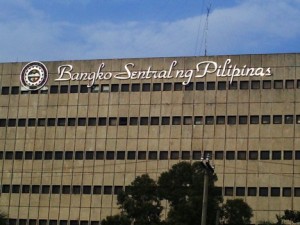Monetary officials approved a fresh set of regulatory relief measures to help ease the financial burden of banks and their branches operating in areas “severely affected” by Supertyphoon “Yolanda.”
The Bangko Sentral ng Pilipinas (BSP) announced on Wednesday several additional relief measures to help affected lenders get back on their feet after the supertyphoon crippled their operations last month.
The BSP urged industry associations “to draw common guidelines that member banks can adopt for the reconstitution of the documents of clients and banks in severely affected areas,” the regulator said in a statement.
The additional special regulatory relief measures have been earmarked for banks operating in Palawan, Iloilo, Aklan, Capiz, Cebu, the Samar provinces and Leyte.
Under Proclamation No. 682, these provinces have been declared “severely affected” areas, according to the BSP.
With the additional regulatory relief package, affected banks may now book on a staggered basis over a 5-year period the losses on loans outstanding as of Nov. 7, 2013 that are partially or fully condoned and written off.
Impairment losses on bank premises, furniture, equipment, and real and other properties acquired on or before Nov. 7—the day before Yolanda made landfall—may also be recognized over a staggered period of up to five years.
The Bangko Sentral said annual regulatory fees for next year could be waived for thrift and rural banks whose head offices are located in severely affected areas.
“Depending on the severity of losses that a bank has incurred, the BSP may, likewise, condone the supervisory fees for up to five years,” the regulator added.
The BSP said it would be more lenient in approving locations of new branches to replace the ones that were destroyed during the storm.
Requirements for the submission of periodic and branch reports of banks with head offices and branches in affected areas will also be relaxed for six months.
Last month, the BSP relaxed its know-your-customer (KYC) procedures to allow banks to take privately issued identification (ID) documents, instead of the standard government IDs, from their clients.
This would make it easier for the public to access their funds, the central bank explained.
These new measures go on top of the BSP’s standard package that is extended to banks whose operations or clients are affected by natural calamities.
Relief measures in the standard package include the relaxation of certain regulatory reportorial requirements and changes in the computation of non-performing loans.
